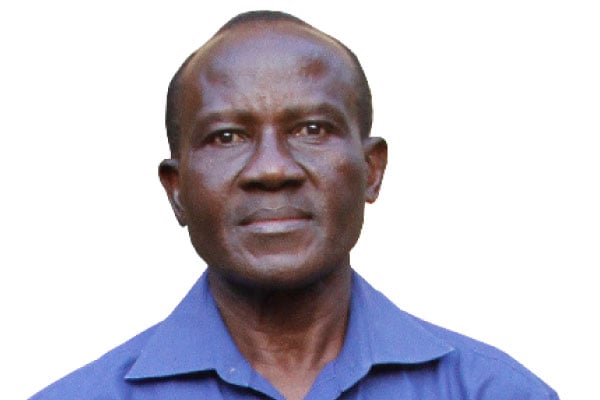Does a home-made Covid vaccine excite you?

Author: Alan Tacca. PHOTO/FILE
What you need to know:
- In a dishonest society, scientists can exploit the excitement about home-made solutions.
We small Africans have heard big Africans vowing to end our dependence on other countries for the supply of vaccines and other medical products. We have been humiliated and universally exhibited as beggarly incompetents.
Powerful spectators look and think: “Why don’t we help those miserable hominids? We cannot abandon them completely. They have governments, but the correct attitude is to assume that they have no leaders.”
However, on balance, perhaps even our leaders deserve support by foreign lords.
Africa’s leaders may not be likable fossils, but they control attractive fossil fuels and other natural resources, and they are always eager to talk shady business.
They normally cannot exhaustively study the contracts, and their lawyers are normally corrupt. This means smart foreign lords can strike great deals.
And while they are at it, a glamorous fool like Nguema’s boy sometimes flies off and buys a Lamborghini or a Ferrari to add to his stable of very expensive toys. After that, a Zimbabwean minister buys a Rolls-Royce. European economies benefit.
So, a foreign lord might as well throw the natives a few crates of vaccines that he may in the end not even need.
Used to begging, our rulers use such small gifts to save face and appease us.
Well, until now. The way they are swearing, you would think they have just discovered the liberating power of science; which is not true.
Take President Museveni. After singing science for years, is his focus on the growth of science? It is on keeping himself in power.
Thirty-six years ago, he told us very clearly that he wanted Uganda to become a “country that makes machines that make machines”.
He visualised a country with very advanced science and technology, and very great economic success.
A country like that can design, develop, test and manufacture various domestic appliances, automobiles, computers, and so on. It can fabricate the components for these machines.
It can fabricate different alloys for specialised applications. Above all, it can fabricate tools for doing those things.
Yes, such a country can scientifically identify and extract the required active compounds from the complex cellular structures of plants and animals (including microbes), and fix those compounds in precise proportions – and on an industrial scale – to make safe drugs. Such a country has tools and expertise to manipulate infinitely tiny viruses and develop safe vaccines thereof.
The general picture indicates a level of scientific work beyond the primitive imagination of medicinal power (by visual association) in, say, rhino horns; or the collection and elementary boiling of Mukuzannume and other potent plants.
Instead of a Uganda like that, I see a country of thieves, whose LDU muscle is more conspicuous than the prowess of its science.
In a thoroughly dishonest society, scientists can exploit the excitement about home-made solutions as readily as politicians and procurement crooks.
It generally takes several years to develop a vaccine. The circumstances around Covid-19 are almost unprecedented, and the commitment and resources thrown at developing a vaccine against the pathogen involved are unusual. A 12-month vaccine was unheard of until Covid-19.
Now, although many EU countries have very advanced pharmaceutical industries, and they have had their arguments about delivery schedules with the foreign vaccine manufacturers who supply them, they are not rushing to develop their own vaccines or announce wonder cures instead of depending on the early arrivals.
Is it possible that they are holding back because they understand the scientific and business complexities of the problem more deeply than President Museveni and our scientists?
Mr Tacca is a novelist, socio-political commentator.
[email protected]



